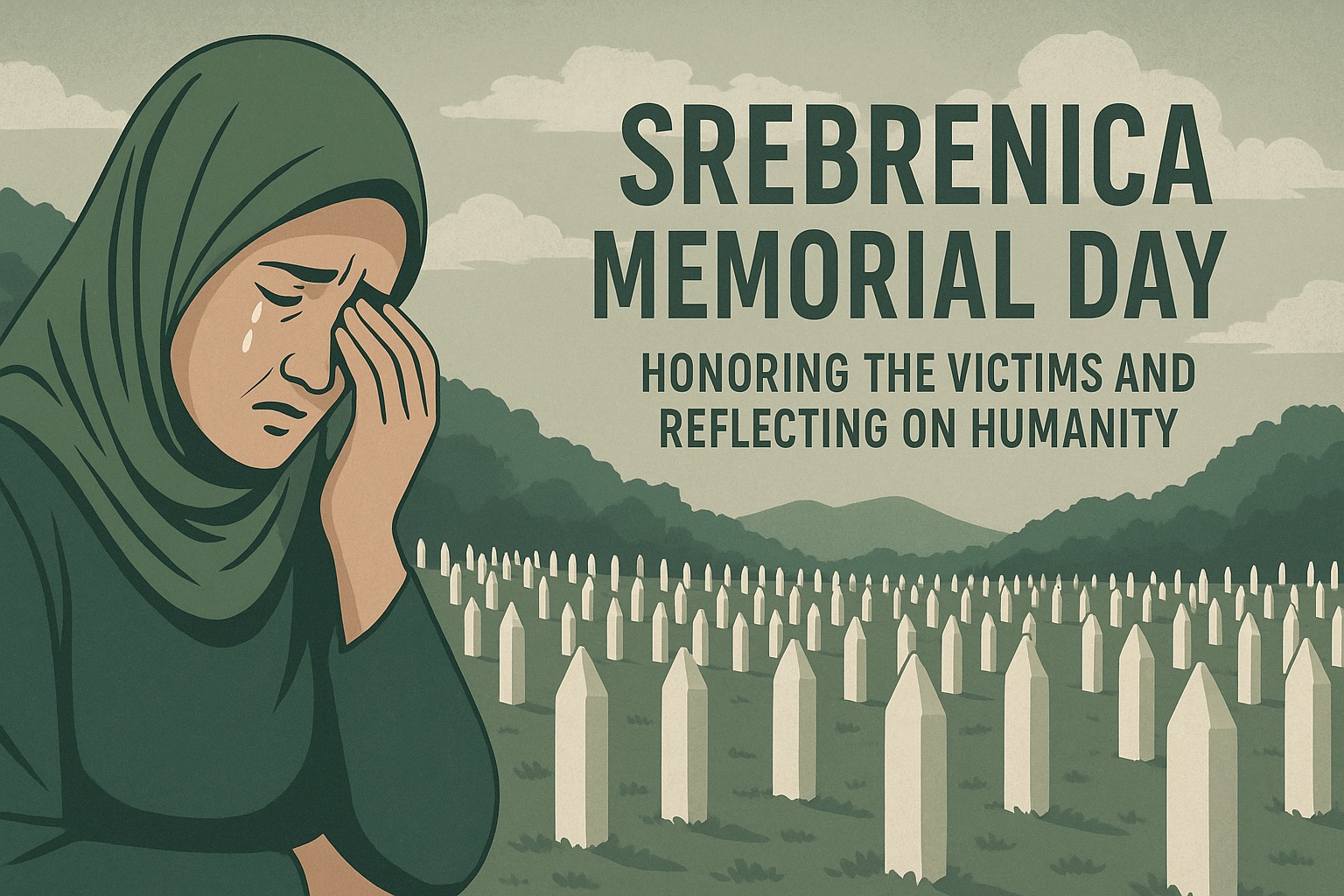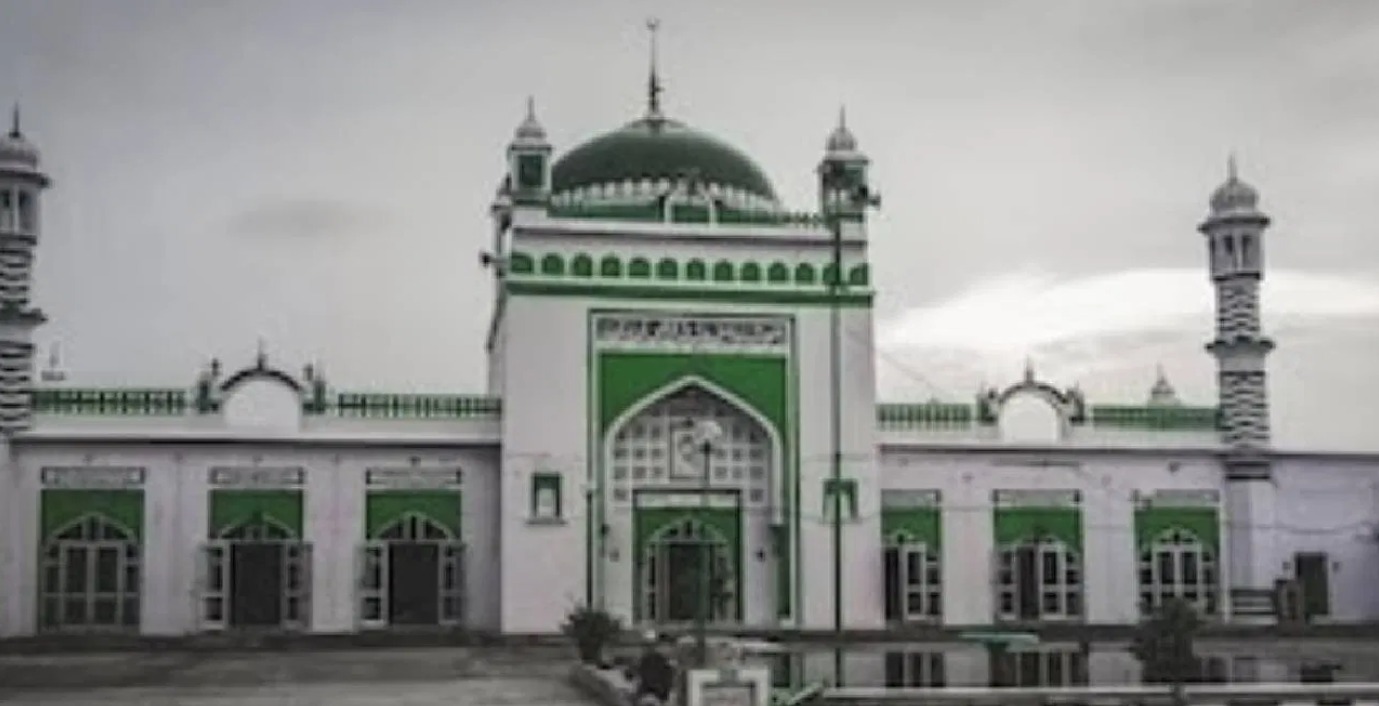
Srebrenica Memorial Day: Honoring the Victims and Reflecting on Humanity
(Dr. Shujaat Ali Quadri)
Every year on July 11, people around the world observe Srebrenica Memorial Day to remember the victims of the Srebrenica genocide, one of the darkest chapters in modern European history. In 1995, during the Bosnian War, more than 8,000 Bosniak (Bosnian Muslim) men and boys were systematically murdered by Bosnian Serb forces in and around the town of Srebrenica. This atrocity was later classified as genocide by international courts, including the International Criminal Tribunal for the former Yugoslavia (ICTY) and the International Court of Justice (ICJ).
Srebrenica Memorial Day serves as a solemn reminder of the consequences of hatred, ethnic division, and international inaction. It is a day to honor the victims, support the survivors, and reaffirm our commitment to preventing such atrocities in the future.
The Historical Context: The Srebrenica Genocide
The Bosnian War (1992–1995) was a brutal conflict following the breakup of Yugoslavia, marked by ethnic cleansing, mass killings, and war crimes. Srebrenica, a predominantly Muslim town in eastern Bosnia, was declared a UN Safe Zone in 1993, under the protection of Dutch peacekeeping forces (UNPROFOR). However, in July 1995, Bosnian Serb forces, led by General Ratko Mladić, overran the enclave.
Despite being outnumbered and outgunned, the UN peacekeepers failed to intervene as Serb forces separated men and boys from women and executed them in mass killings. Thousands were buried in mass graves, with many bodies later exhumed and identified through DNA analysis. The scale and systematic nature of the killings led to the event being recognized as genocide.
The Importance of Remembrance
Srebrenica Memorial Day is not just about looking back—it is about ensuring that such horrors are never repeated. The genocide in Srebrenica was the worst mass killing in Europe since World War II, and it exposed the failures of the international community to protect civilians.
Justice and Accountability: Over the years, several key figures involved in the genocide have been prosecuted:
Ratko Mladić, the Bosnian Serb military leader, was convicted of genocide and crimes against humanity by the ICTY and sentenced to life imprisonment in 2017.
Radovan Karadžić, the political leader of the Bosnian Serbs, was also found guilty of genocide and given a life sentence.
The International Court of Justice (ICJ) ruled in 2007 that Serbia had failed to prevent genocide but was not directly responsible for it.
Despite these convictions, many survivors and families of victims still seek full justice, as some perpetrators remain at large or have not faced adequate punishment.
The Power of Commemoration: Every year, survivors, families, and international dignitaries gather at the Srebrenica-Potočari Memorial and Cemetery to bury newly identified victims. To date, more than 6,000 victims have been laid to rest, with forensic experts still working to identify remains found in mass graves.
The annual “Peace March” (Marš Mira) retraces the path taken by survivors who fled through the forests to escape the massacre. This march symbolizes resilience and solidarity.
Lessons for the Future
The Srebrenica genocide teaches us about the dangers of:
Ethnic nationalism and hate speech – Dehumanizing rhetoric paved the way for mass violence.
International indifference – The UN and global powers failed to act despite warnings.
Denial and revisionism – Some political leaders still deny the genocide, deepening divisions.
Global Recognition and the Fight Against Denial: While many countries officially recognize the Srebrenica genocide, denial remains a problem, particularly among nationalist groups in Bosnia and Serbia. In 2015, Russia vetoed a UN resolution condemning the genocide, illustrating how political interests can distort historical truth.
Efforts to educate younger generations about Srebrenica are crucial. Schools, museums, and documentaries help ensure that the memory of the victims lives on.
Never Again? Srebrenica Memorial Day is a call to action—a reminder that “Never Again” must be more than just words. It challenges us to:
Stand against hatred and discrimination wherever it arises. Hold perpetrators of war crimes accountable. Support survivors and promote reconciliation.
As we remember the thousands of lives lost in Srebrenica, we must commit to building a world where such atrocities are not just mourned but prevented. The victims deserve justice, the survivors deserve recognition, and humanity deserves a future free from genocide.
“For those who were killed, for those who survived, and for those who come after—we must never forget.”
